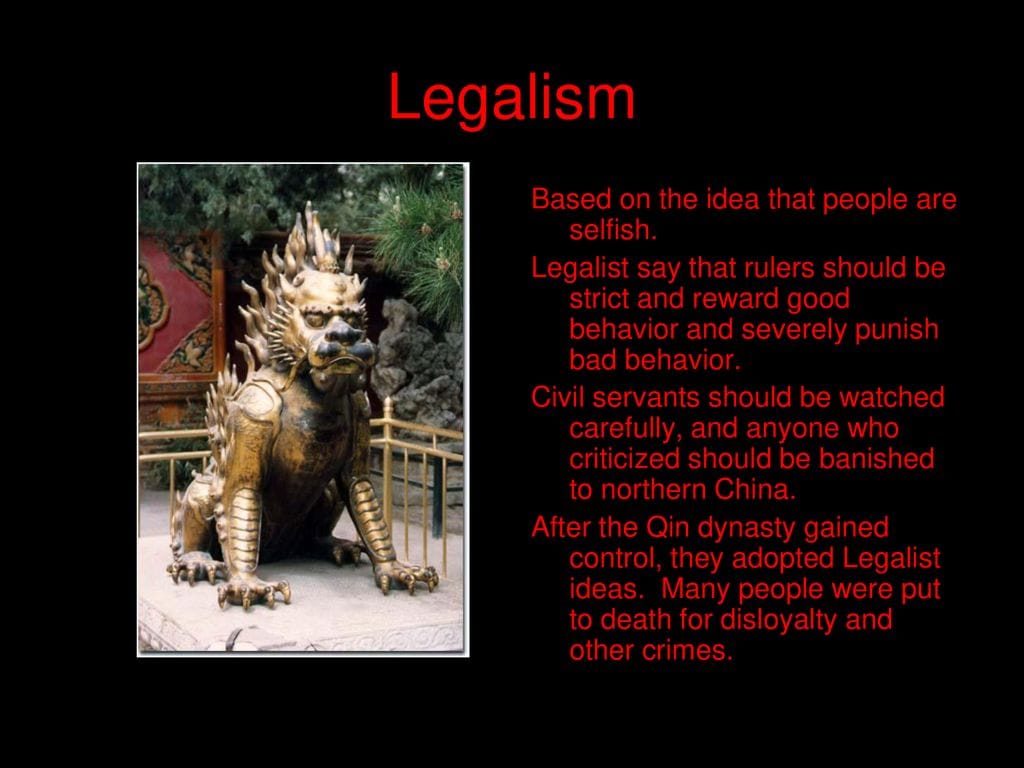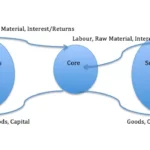Imagine a world where philosophies clash over the very essence of human nature. Are we inherently good or bad? This question has fueled debates for centuries, and in ancient China, two prominent schools of thought offered radically different answers: Legalism and Confucianism. This article explores these contrasting philosophies, examining their views on human nature and the implications for governance, offering a fresh perspective on an age-old question.
The Philosophy of Control: Legalism
Legalism, emerging during a period of intense social and political upheaval in ancient China known as the Warring States period (475-221 BCE), offered a pragmatic, if somewhat cynical, view of human nature. Thinkers like Han Feizi and Shang Yang, key proponents of Legalism, posited that humans are inherently selfish, driven by self-interest and a natural aversion to morality. Left unchecked, this inherent selfishness, they argued, would inevitably lead to chaos and disorder.
Given this pessimistic view, Legalists believed that a strong, centralized government wielding absolute authority was essential. Strict laws, enforced through harsh punishments and strategically placed rewards, were considered the only effective means of maintaining social order. Education, in the Legalist framework, served solely as a tool to instill obedience and serve the state’s interests, rather than fostering individual growth or moral development. The Qin dynasty (221-206 BCE), which unified China under Legalist principles, exemplified this approach. While achieving unification, its notoriously oppressive rule ultimately contributed to its swift downfall, perhaps illustrating the potential pitfalls of a system built solely on control and fear.
The Path of Self-Cultivation: Confucianism
In stark contrast to Legalism’s bleak outlook, Confucianism, founded by Confucius during the same tumultuous period, offered a more optimistic perspective. Confucians believed that humans are inherently good, born with an innate moral compass known as “ren” and a capacity for empathy, compassion, and virtue. This “seed of goodness,” as some scholars interpret it, suggested that everyone possessed the potential for moral growth and self-improvement.
Confucianism emphasized the importance of nurturing this inherent goodness through education, moral exemplars (like the “Junzi,” the ideal person), and rituals that reinforced ethical behavior. The role of government, in this context, was not to control and punish, but to cultivate a virtuous society by leading through moral example and fostering a culture of ethical education. Unlike Legalism’s focus on external control, Confucianism stressed the importance of internal transformation, believing that a harmonious society stemmed from the moral development of its individual members. Confucianism’s influence spanned centuries, becoming the dominant philosophy in China and arguably contributing to periods of social stability and cultural flourishing.
Legalism vs. Confucianism: A Head-to-Head Comparison
To better grasp the fundamental differences between these two influential philosophies, let’s examine them side-by-side:
| Feature | Legalism | Confucianism |
|---|---|---|
| Human Nature | Inherently selfish, prone to wrongdoing | Inherently good, capable of moral growth |
| Role of Government | Strict enforcer of laws | Cultivator of virtue |
| Method of Control | Punishment and reward | Education and moral example |
| Key Figures | Han Feizi, Shang Yang | Confucius |
| Historical Example | Qin Dynasty | Han Dynasty |
The contrasting approaches of Legalism and Confucianism highlight a fundamental tension in governance: strict control versus moral cultivation. While Legalism views humanity’s selfish nature as a problem demanding strict control, Confucianism sees it as raw material to be molded through ethical education.
Modern Relevance: Echoes of an Ancient Debate
Remarkably, the debate between Legalism and Confucianism isn’t confined to ancient history. Its echoes resonate even today, shaping discussions about the role of government, the balance between individual liberty and security, and the efficacy of punishment versus rehabilitation. Globally, different societies and political systems grapple with these very questions. Discover the fascinating tales of triumphant revolutions against imperialism throughout history by exploring the detailed accounts documented at successful rebellions against imperialism. These historical events often reflect underlying tensions between control and autonomy, mirroring the core philosophical differences between Legalism and Confucianism. Some lean towards stricter laws and surveillance, prioritizing order and security, while others emphasize individual rights and freedoms, placing faith in the potential for human goodness.
Beyond Dichotomies: A Nuanced Perspective
While Legalism and Confucianism present seemingly diametrically opposed views, they both grapple with a fundamental question: what is the best way to achieve a harmonious society? Perhaps neither philosophy holds the complete answer. Legalism’s emphasis on law and order can provide a necessary framework, while Confucianism’s focus on ethical development can foster a sense of social responsibility. It’s likely that a balanced approach, integrating elements of both, may be most effective in navigating the complexities of human nature and building a just and thriving society. This ongoing tension between control and cultivation continues to shape political and social discourse, suggesting that the wisdom of the ancients remains strikingly relevant in the modern world. Ongoing research into historical and contemporary governance models may provide further insights into finding this delicate balance.









